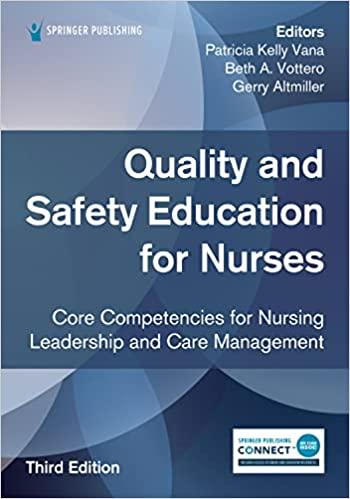John, a new graduate, just completed his 3-month orientation. He is given a complex patient assignment without
Question:
John, a new graduate, just completed his 3-month orientation. He is given a complex patient assignment without the assistance of a preceptor. After receiving a quick bedside report from the night nurse, John notices that the patient is restless and has an elevated respiratory rate. He is concerned, but realizes the patient is not wearing his oxygen. He puts the nasal cannula on the patient and tells him he will be back to check on him. John gets behind in his work, but wants to make a good impression with his colleagues and decides not to ask for help. One hour later, the nursing assistant tells John that the patient is in respiratory distress. John checks the patient and decides to ask the charge nurse for help. After assessing the patient, the charge nurse calls the interprofessional rapid response team and tells John to bring the crash cart into the room. When the team arrives, they decide the patient is unstable and must be transferred to the ICU for close monitoring.
1.
What critical steps should John have taken to engage the interprofessional team sooner?
2.
Describe the places where teamwork and communication could have been strengthened in this case.
3.
Identify the quality and safety issues that emerged around teamwork and collaboration. What actions could have been taken to prevent the need for a patient transfer to the ICU.
Step by Step Answer:

Quality And Safety Education For Nurses Core Competencies For Nursing Leadership And Care Management
ISBN: 9780826161444
3rd Edition
Authors: Patricia Kelly Vana, Beth A. Vottero, Gerry Altmiller






